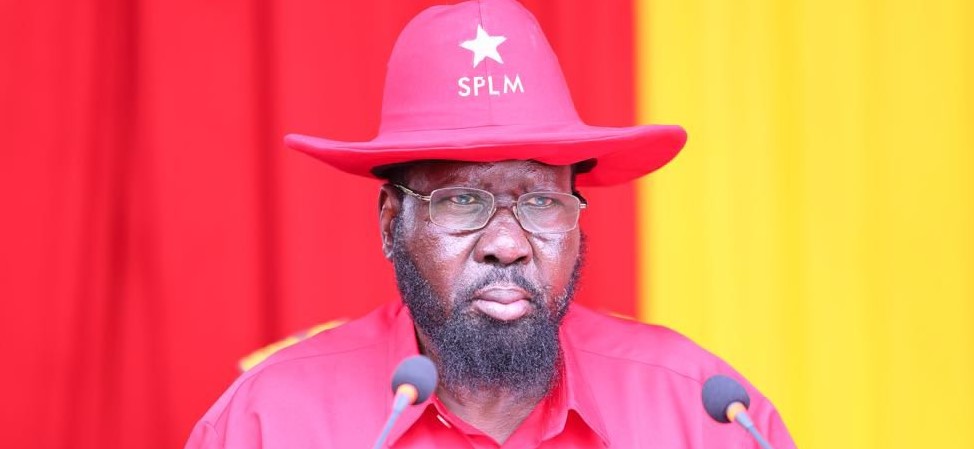South Sudan’s President Salva Kiir, who also chairs the ruling Sudan People’s Liberation Movement (SPLM), has tasked the newly appointed secretary-general with revitalizing the party and aligning its programs with the country’s political realities.
Kiir on Tuesday swore in Prof. Paul Logale Jumi as the party’s sixth secretary-general during a ceremony at SPLM House in the capital, Juba.
Logale, from Central Equatoria State, replaces Dr. James Wani Igga, who was unexpectedly removed as deputy chairman and secretary-general in May.
The SPLM, South Sudan’s governing party, has been fractured since the 2013 civil war, with breakaway factions including one led by detained First Vice President Riek Machar.
Kiir said the party’s future depends on rebuilding from the grassroots to the national level.
“As secretary-general, your primary duty is to revitalize the party, strengthen our structures, and align our programs with today’s political realities,” Kiir said. “The future of the SPLM rests on engaging and empowering South Sudan’s youth and women. They must not be left on the sidelines.”
Under the party’s constitution, the secretary-general oversees daily operations, manages the secretariat, and coordinates internal communications and activities.
Kiir reiterated that the 2018 Revitalized Peace Agreement remains the roadmap for sustainable peace and should guide all political actions.
Meanwhile, SPLM Deputy Chairman Dr. Benjamin Bol Mel urged the new secretary-general to reconnect the party with the people.
“Our president is a man of peace, carrying the hopes of millions of South Sudanese,” Mel said. “We must be exemplary. Peace is not just a goal—it is the driver of development and national progress.”
He called for grassroots mobilization ahead of elections scheduled for December 2024. “The SPLM must win—not for power, but for the people,” he said.
In his remarks, Logale pledged commitment to the party’s vision.
“We are at a critical juncture in our nation’s history,” he said. “Together, we will steer South Sudan toward peace, stability, and prosperity.”
Kiir and Machar signed a fragile peace agreement in 2018 and formed a power-sharing transitional government. However, the deal has faced implementation challenges due to mistrust between the two leaders.
Tensions between Kiir and Machar reached a low point in March when Kiir placed Machar under house arrest, accusing him of supporting a rebellion. Several of Machar’s allies were also arrested.




